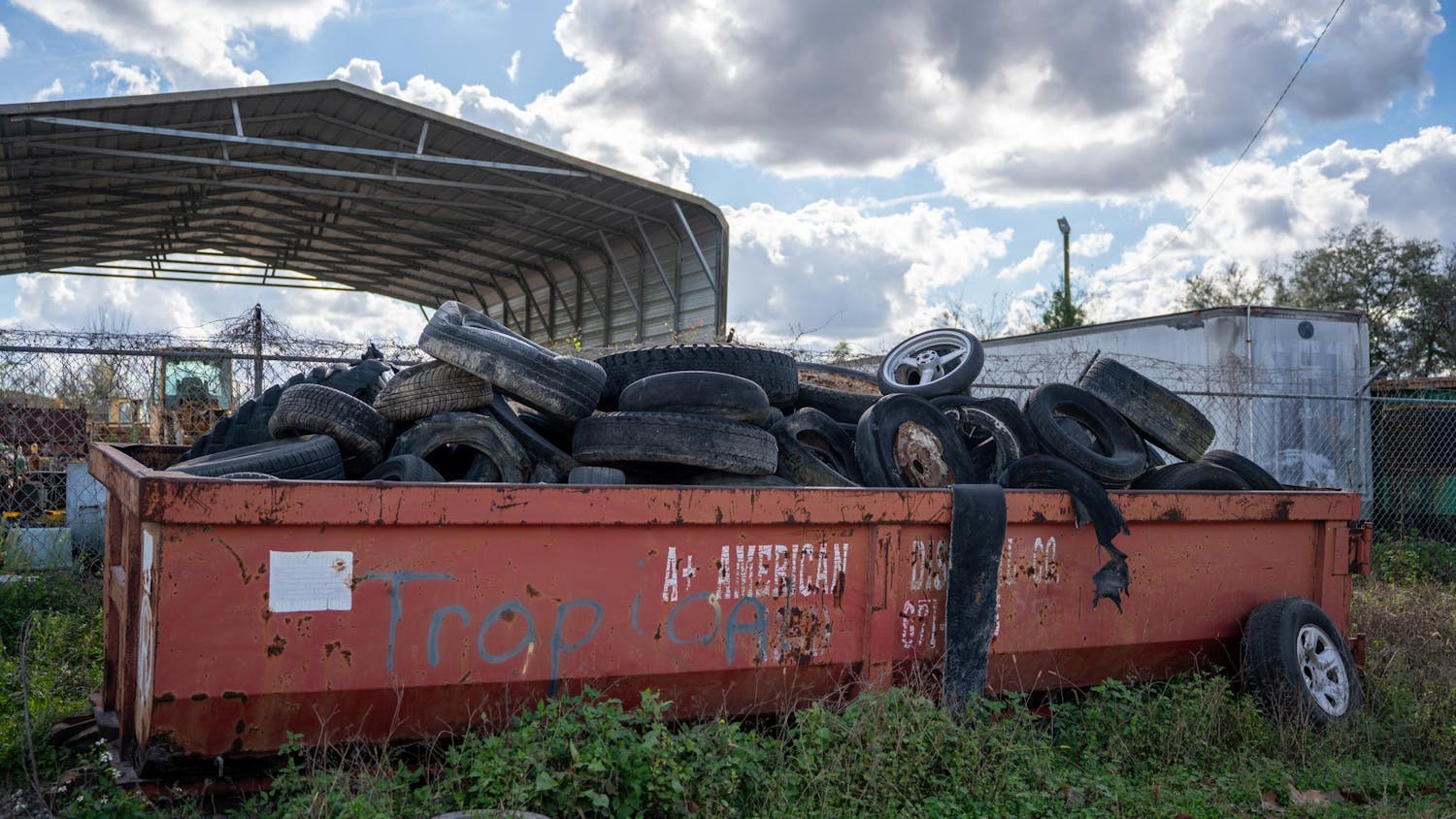With all the water that’s been pouring from the sky, it’s a wonder that UF’s sprinklers never stop spitting.
As of May 22, Gainesville has received 5.38 inches of rain throughout the month so far, meteorologist for the Jacksonville office of the National Weather Service Nate McGinnis said. This is 1.5 inches above average.
Even with all of this rain, UF keeps the sprinklers running. Occasionally, the sprinklers even work with the rain to keep the grass wet.
“Wasteful” is the word Joean Cho, a UF psychology junior, used to describe UF’s practice of watering the grass on campus while it’s raining.
However, the UF Office of Sustainability Director Matt Williams offered an explanation on why running the sprinklers in the rain is actually a sustainable practice.
The campus is unique in that it has its own in-house waste water treatment plant, Williams said.
For years, the plant had been cleaning the waste water, which comes from the sinks and toilets on campus.
When UF first started treating the water, it was filtered and then dumped into a small depression of soil, Williams said. Over the years, this treatment method turned that small depression into the Lake Alice we know today.
That system was then changed to push treated water into injection wells, Williams said. Most wells pull water out of the ground, but these wells push it deep underground.
Williams said this method is safe and it is used throughout the state.
The school later looked into using this water for irrigation, Williams said. At the time, the irrigation system was a major sink for water.
This system was changed about 10 years ago to use the reclaimed water for the sprinklers first, Williams said. Today, about 98 percent of the water used for irrigation on campus comes from the reclaimed water system.
When the tank becomes too full, the irrigation system runs, even if rain is falling, Williams said. This is in addition to scheduled watering.
The amount of water in the tank is dependent on the number of students on campus using sinks, showers and toilets, Williams said. This means the number of times the sprinklers come on can change on a weekly basis.
“Even if it continues raining for another week, you might actually see the sprinklers come on in the rain,” Williams said.
Follow Gillian Sweeney on Twitter@gilliangsweeney and contact her at gsweeney@alligator.org.





